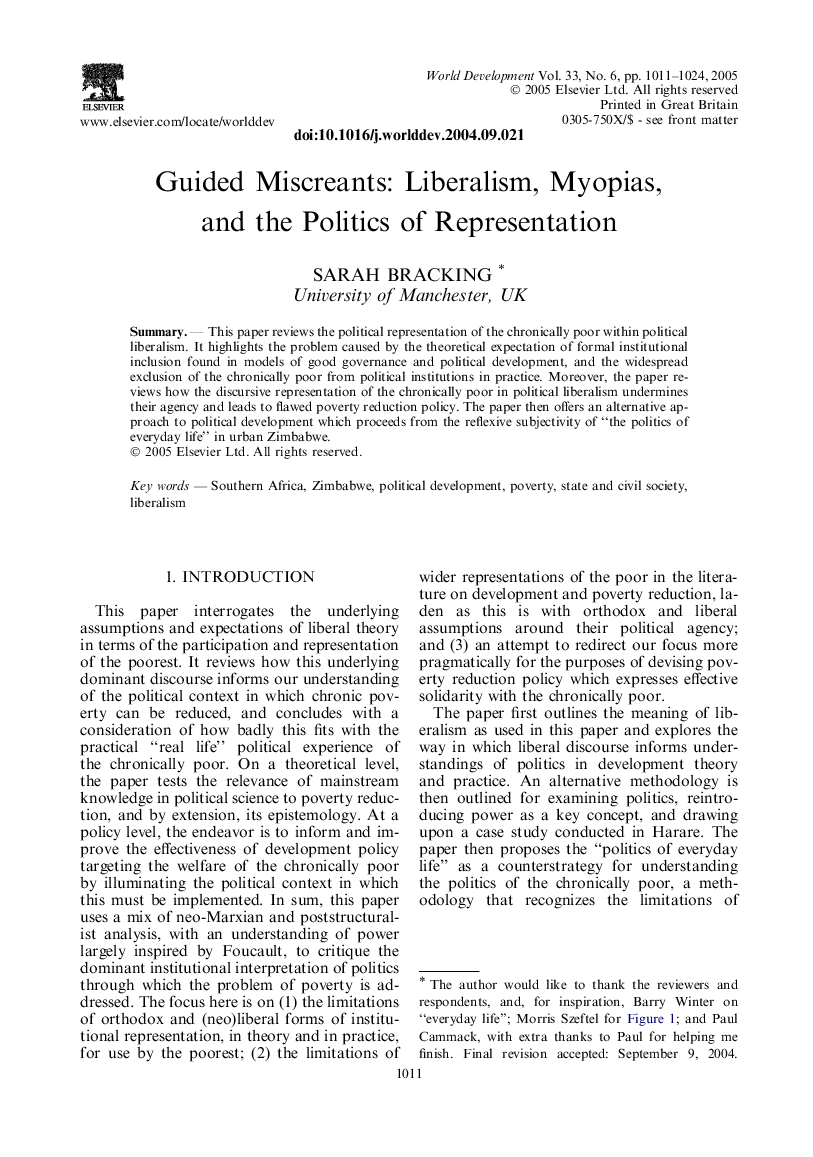| Article ID | Journal | Published Year | Pages | File Type |
|---|---|---|---|---|
| 10486667 | World Development | 2005 | 14 Pages |
Abstract
This paper reviews the political representation of the chronically poor within political liberalism. It highlights the problem caused by the theoretical expectation of formal institutional inclusion found in models of good governance and political development, and the widespread exclusion of the chronically poor from political institutions in practice. Moreover, the paper reviews how the discursive representation of the chronically poor in political liberalism undermines their agency and leads to flawed poverty reduction policy. The paper then offers an alternative approach to political development which proceeds from the reflexive subjectivity of “the politics of everyday life” in urban Zimbabwe.
Related Topics
Social Sciences and Humanities
Economics, Econometrics and Finance
Economics and Econometrics
Authors
Sarah Bracking,
